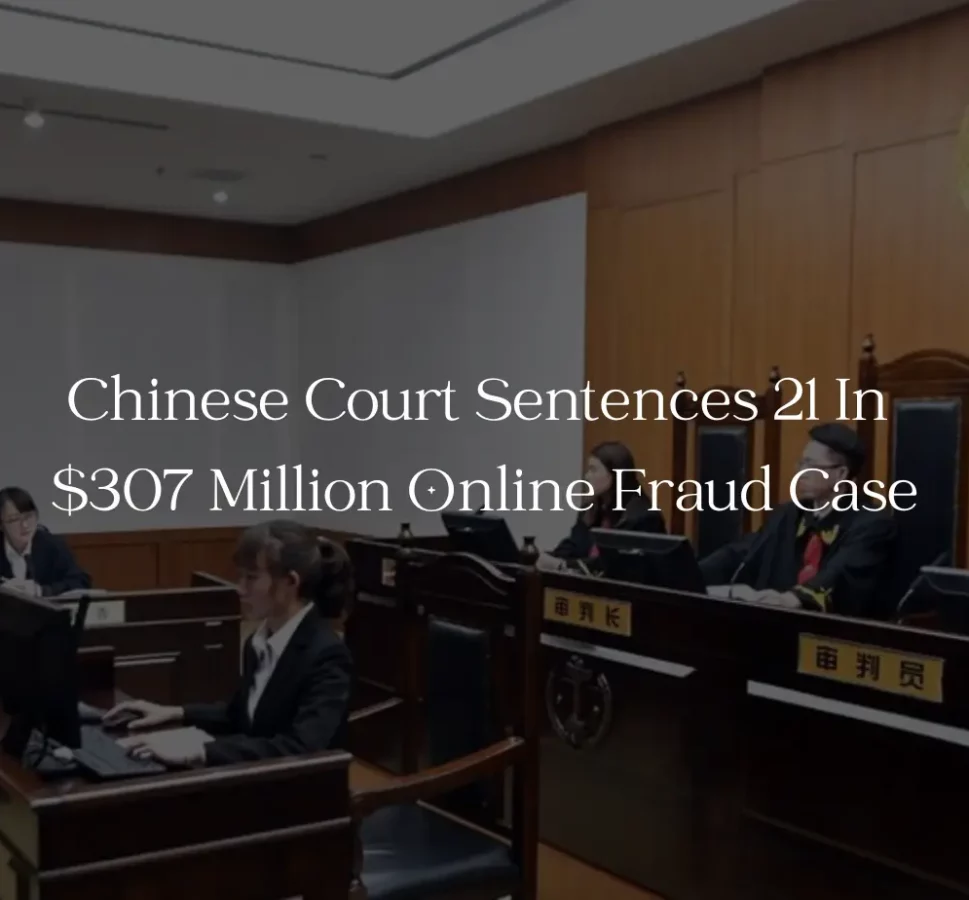- Tongliang court convicts 21 individuals for converting online fraud earnings into 2.25 billion RMB.
- Defendants Jiang and Zheng recruited money mules to transfer USDT to RMB via Bitpie.
- Court fines Jiang and Zheng exposed Tether’s role in fueling Southeast Asian fraud rings.
A Tongliang court in China, situated in close proximity to Chongqing, has issued verdicts for 21 individuals involved in converting the earnings from online fraudulent activities and illicit casinos, which were in the form of Tether (USDT), into Chinese Yuan (RMB), amounting to a total of 2.25 billion RMB ($307 million).
As per information provided in a court announcement, a pair of defendants, identified by the last names Jiang and Zheng, were responsible for enlisting 19 additional individuals as money mules. The collective, as outlined in court records, utilized a decentralized wallet known as Bitpie, which is akin to Metamask, to transfer USDT to local peer-to-peer (P2P) exchanges on digital currency platforms for its conversion into Renminbi (RMB).
Subsequently, they withdrew the fiat currency in various cities across the country, justifying the transfers under false pretenses such as project payments and employee wages when questioned about the purpose of the transactions. According to court records, Jiang managed to profit 22.62 million RMB ($3 million) through his actions.
The court determined that the group was guilty of disguising and concealing illicit gains, and as a result, they were sentenced to varying prison terms and fines. Jiang received a sentence of six years and three months, along with a 500,000 RMB fine. In a similar vein, Zheng also received a six-year prison term and the same 500,000 RMB fine.
While the court document doesn’t specify the exact source of this USDT, it’s worth noting that Tether is a commonly used digital asset by fraudulent organizations in Southeast Asia. In his recently published book, titled “Number Go Up,” Bloomberg journalist Zeke Faux extensively discusses how these criminal groups are notably fueled by Tether.
NEW: “What are you doing"
— Bloomberg Crypto (@crypto) August 17, 2023
“have you slept”
“where is my dear friend”
It was "Vicky’s" job to defraud people through social engineering. But what started as a game of cat and mouse with a scammer became a descent into crypto hell.
Read The Big Take ⬇️ https://t.co/4FsAQ5hzAu






